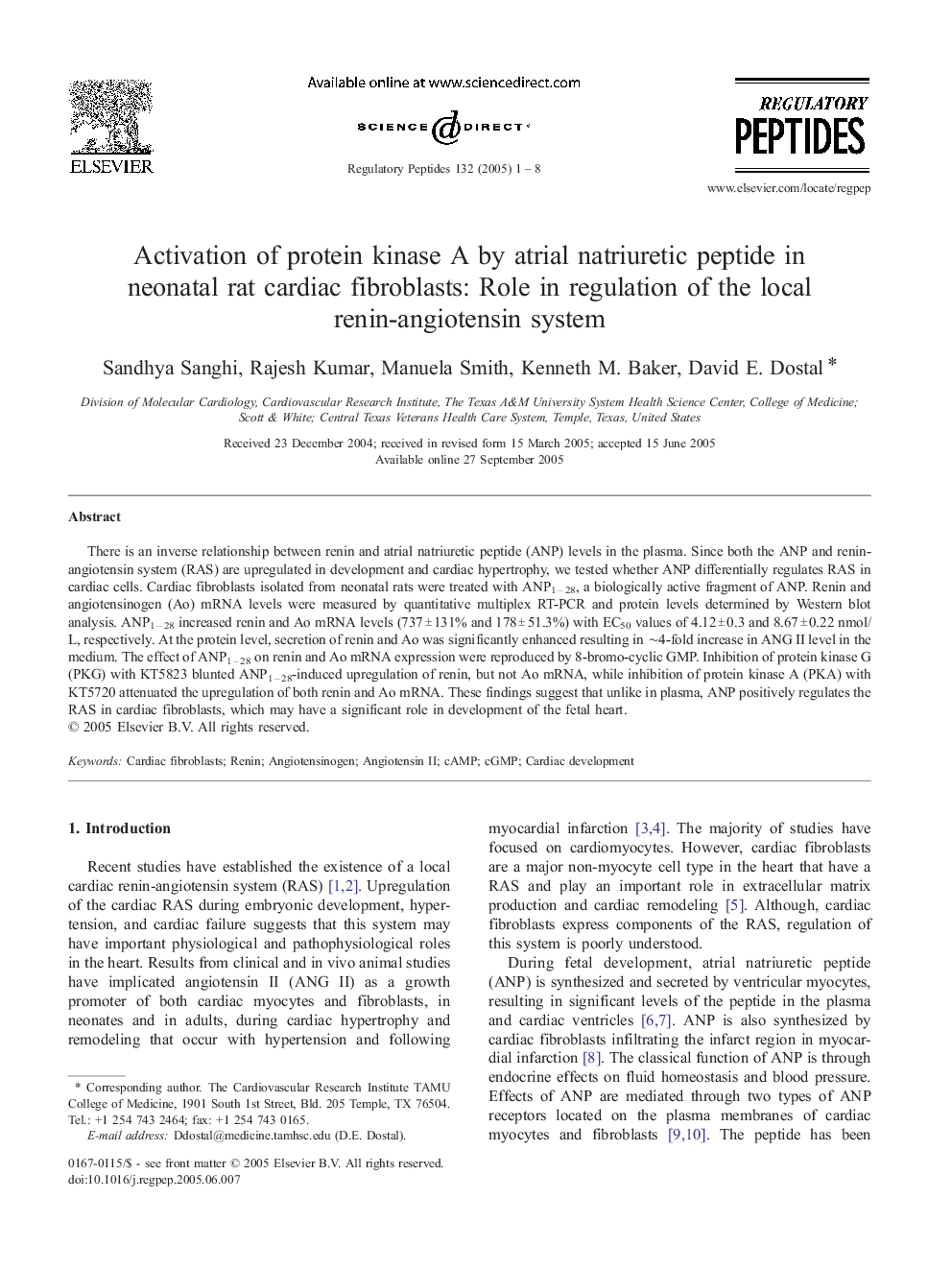| Article ID | Journal | Published Year | Pages | File Type |
|---|---|---|---|---|
| 9894342 | Regulatory Peptides | 2005 | 8 Pages |
Abstract
There is an inverse relationship between renin and atrial natriuretic peptide (ANP) levels in the plasma. Since both the ANP and renin-angiotensin system (RAS) are upregulated in development and cardiac hypertrophy, we tested whether ANP differentially regulates RAS in cardiac cells. Cardiac fibroblasts isolated from neonatal rats were treated with ANP1-28, a biologically active fragment of ANP. Renin and angiotensinogen (Ao) mRNA levels were measured by quantitative multiplex RT-PCR and protein levels determined by Western blot analysis. ANP1-28 increased renin and Ao mRNA levels (737 ± 131% and 178 ± 51.3%) with EC50 values of 4.12 ± 0.3 and 8.67 ± 0.22 nmol/L, respectively. At the protein level, secretion of renin and Ao was significantly enhanced resulting in â¼4-fold increase in ANG II level in the medium. The effect of ANP1-28 on renin and Ao mRNA expression were reproduced by 8-bromo-cyclic GMP. Inhibition of protein kinase G (PKG) with KT5823 blunted ANP1-28-induced upregulation of renin, but not Ao mRNA, while inhibition of protein kinase A (PKA) with KT5720 attenuated the upregulation of both renin and Ao mRNA. These findings suggest that unlike in plasma, ANP positively regulates the RAS in cardiac fibroblasts, which may have a significant role in development of the fetal heart.
Related Topics
Life Sciences
Biochemistry, Genetics and Molecular Biology
Biochemistry
Authors
Sandhya Sanghi, Rajesh Kumar, Manuela Smith, Kenneth M. Baker, David E. Dostal,
